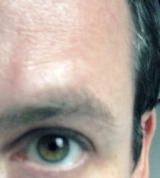I have been reading, with great interest and enjoyment, the biography of Willem deKooning that recently won the Pulitzer Prize. I have always worshipped deKooning’s art, and now, learning of his life, I am faced with many questions about my own. There are parallels in our childhoods and our respective concepts of the artist life. I will not enumerate them in detail here, except to say that, like deKooning, I have always been caught between the need to establish a kind of secure “comfort zone” in my own living situation which often conflicts with my desire to dedicate myself totally to my creative work. Anyone, it seems, who has had a childhood marked by traumatic instability usually needs to create at least the illusion of stability. Artists who come from more affluent or secure backgrounds often are better able to throw caution to the wind and live the truly bohemian life, because they come from a level of safety that I don’t have. But I have been lucky. I have never had a “day job”, or even an adult job that wasn’t in the world of music. And I don’t work 9-5. So I really should spend more of my time composing, instead of just thinking about composing. Or are they one and the same?
Years ago, midway through my second year of graduate school, I won a prestigious composition prize, with money attached, and then a week later I was awarded a sizeable fellowship intended to support my work as a composer. I took a trip to France, planning to take two quarters off from school, and I planned on staying in Europe for months, or even more. I had no solid plan, not even a real itinerary. I arrived in Paris without a place to stay and no worries. I was emboldened by being a foreigner, by having a world of possibilities and newness. But it turns out I could not stay; my mother was diagnosed with terminal cancer and I returned home. My mother died a few months later, and I felt lost, and nowhere was home anymore. A year and a half later, I finished my degrees in Chicago and had decided to make my way in New York. My old teacher from college, a composer whom I admire and respect, who has helped me a great deal (and who was instrumental in getting me the fellowship) suggested that I not take so "safe" a route, and instead travel to Asia and Africa and wander about, soaking up the music and the people. I felt like a failure when she wrote that to me, for I knew that I could not do that. How could I explain that the bottom had fallen out for me? That to embark on a solitary journey, when there was nothing concrete to come back to, or to leave from, would be impossible for me? She was right, but the timing was not.
Years ago, midway through my second year of graduate school, I won a prestigious composition prize, with money attached, and then a week later I was awarded a sizeable fellowship intended to support my work as a composer. I took a trip to France, planning to take two quarters off from school, and I planned on staying in Europe for months, or even more. I had no solid plan, not even a real itinerary. I arrived in Paris without a place to stay and no worries. I was emboldened by being a foreigner, by having a world of possibilities and newness. But it turns out I could not stay; my mother was diagnosed with terminal cancer and I returned home. My mother died a few months later, and I felt lost, and nowhere was home anymore. A year and a half later, I finished my degrees in Chicago and had decided to make my way in New York. My old teacher from college, a composer whom I admire and respect, who has helped me a great deal (and who was instrumental in getting me the fellowship) suggested that I not take so "safe" a route, and instead travel to Asia and Africa and wander about, soaking up the music and the people. I felt like a failure when she wrote that to me, for I knew that I could not do that. How could I explain that the bottom had fallen out for me? That to embark on a solitary journey, when there was nothing concrete to come back to, or to leave from, would be impossible for me? She was right, but the timing was not.

No comments:
Post a Comment